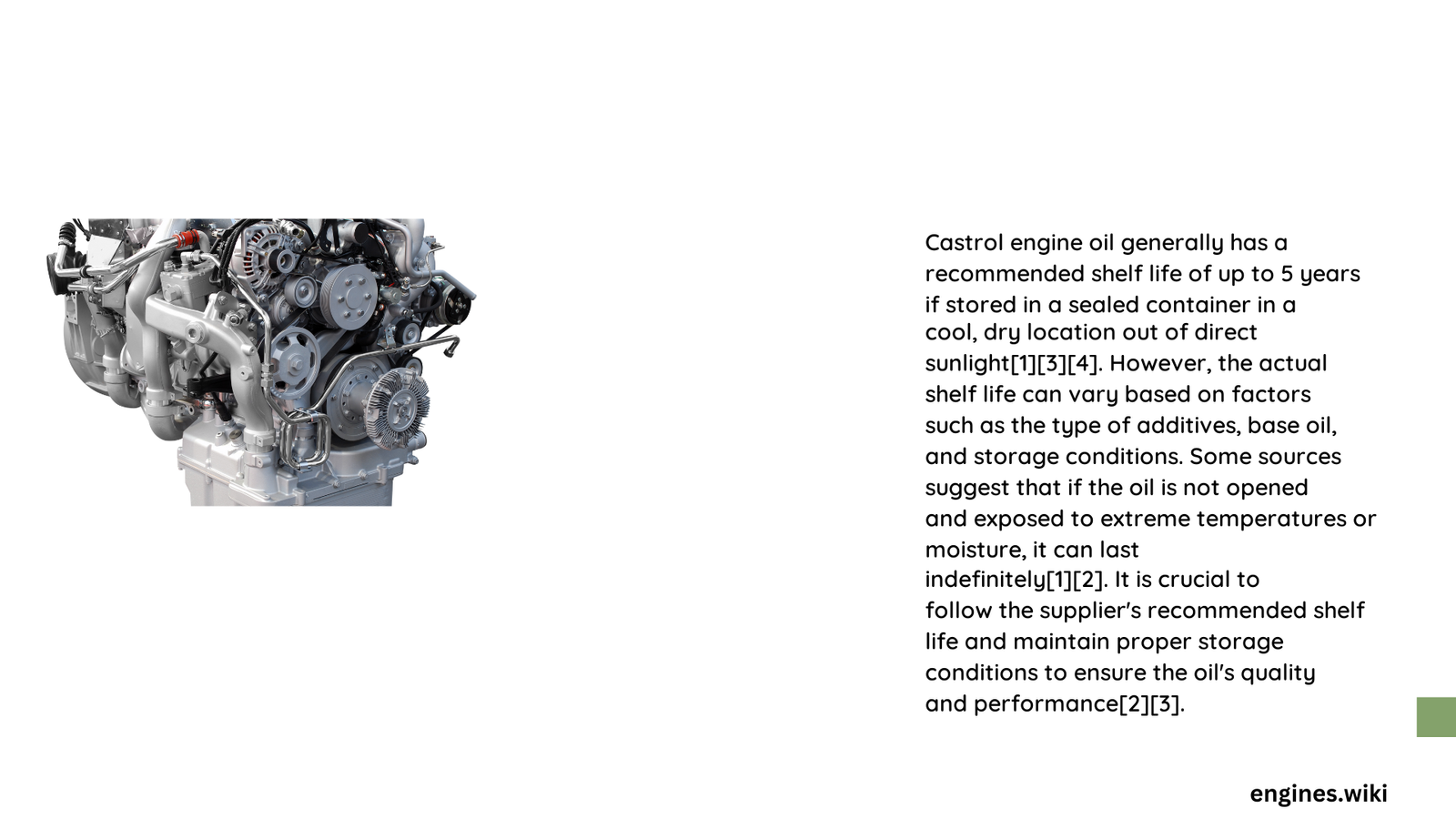Castrol engine oils are critical for maintaining vehicle performance, but many car owners wonder about their longevity. Understanding the shelf life of Castrol engine oil involves examining storage conditions, oil type, and potential degradation factors. While Castrol does not provide a strict expiration date, proper storage and usage guidelines can help maximize oil quality and protect your engine’s critical components.
What Is the Typical Shelf Life of Castrol Engine Oil?
Castrol engine oils generally maintain their optimal performance for approximately 5 years when stored under appropriate conditions. The shelf life can vary depending on several key factors:
Factors Affecting Castrol Engine Oil Shelf Life
| Factor | Impact on Oil Quality |
|---|---|
| Storage Temperature | High temperatures accelerate oil degradation |
| Humidity Exposure | Moisture can compromise oil additives |
| Container Integrity | Sealed containers prevent contamination |
| Oil Formulation | Synthetic oils typically have longer stability |
How to Properly Store Castrol Engine Oil?

Proper storage is crucial for maintaining oil quality. Follow these essential guidelines:
- Temperature Control
- Store in cool, consistent environments
- Avoid direct sunlight
-
Maintain temperature between 40-85°F (4-29°C)
-
Container Management
- Keep original sealed container
- Store in upright position
-
Prevent physical damage to container
-
Environmental Protection
- Choose dry storage locations
- Minimize exposure to extreme temperature fluctuations
- Protect from potential contamination sources
What Happens to Castrol Engine Oil Over Time?
Engine oil undergoes several changes during extended storage:
- Additive Settlement: Performance-enhancing chemicals can separate
- Viscosity Modifications: Oil’s thickness may change
- Potential Contamination: Risk of moisture or particulate intrusion
- Chemical Breakdown: Gradual degradation of molecular structures
How to Determine If Stored Castrol Oil Is Still Usable?
Visual and Physical Inspection Checklist
- ✓ Check for color changes
- ✓ Verify no visible contamination
- ✓ Ensure container seal remains intact
- ✓ Gently mix oil before potential use
- ✓ Look for unusual odors or consistency
Recommendations for Long-Term Oil Storage
- Purchase smaller quantities to minimize storage time
- Record purchase date on container
- Rotate oil stock using first-in, first-out method
- Consider professional analysis for critical applications
When Should You Replace Stored Castrol Engine Oil?
Replace oil if you observe:
– Significant color alteration
– Unusual odor
– Visible particle contamination
– Container damage
– Exceeded 5-year storage period
Expert Tips for Maximizing Oil Longevity
- Choose synthetic formulations for extended storage
- Invest in climate-controlled storage
- Avoid frequent temperature fluctuations
- Minimize container movement
Conclusion
While Castrol engine oil does not have a strict expiration date, following proper storage practices can help maintain its quality. Always prioritize your vehicle’s performance by using fresh, properly stored oil.
